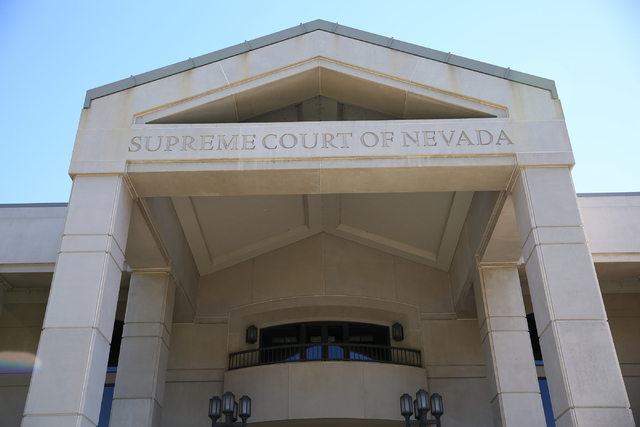Despite complexities, what’s best for the child should be at the heart of any custody case

Pull up behind a vehicle and there’s a sticker on the rear window signifying the family within. Mom, Dad, two or three kids, maybe a cat or a dog or both. That was “family” when I grew up.
No more. As a result, child custody cases have become far more complicated today because the definition of “family” is so much more complex.
The Cleavers from “Leave It To Beaver” are no longer America’s typical family.
Today, there are more unmarried couples raising children, more gay and lesbian couples raising children, more single women having children without a male partner in the picture and more people living together without getting married.
But whether couples are gay or straight, the toughest legal issues revolve around child custody battles.
One Nevada case over the definition of motherhood began in 2009 and is still in the courts some eight years later, even though the major issues seemed to be decided by the Nevada Supreme Court in 2013.
The child is 8 years old, and two women still are fighting over who is the legal mother.
In this child custody case, two lesbians, Sha’Kayla St. Mary and Veronica Lynn Damon, became a couple and decided to have a child.
They drew up a co-parenting agreement saying they would both be the legal mothers. The child was born in June 2008.
St. Mary, an African-American, gave birth to the child through in vitro fertilization, using Damon’s egg and sperm from an anonymous mixed-race donor. Damon is white.
All went well until about a year later when the two women ended their own relationship and St. Mary moved out.
Soon, they began fighting over child custody, ending up in family court.
Egg donor Damon wanted sole custody, claiming St. Mary was a surrogate and that, despite the co-parenting agreement she drew up, they were not a couple..
St. Mary, who gave birth to the child, wanted shared custody, not exclusive custody.
One District Court judge ruled that Damon was the legal parent. Without holding a hearing, he ruled St. Mary was just a surrogate and lacked any legal rights to parent the child.
St. Mary appealed his decision to the Nevada Supreme Court.
In a unanimous opinion, Justice Nancy Saitta wrote that the family court judge was wrong and sent the case back to the lower court. The higher court said St. Mary could be the child’s legal mother and said there are multiple ways to prove maternity. Also, the law does not preclude a child from having two mothers.
Saitta said the important question in any child custody case is: What is best for the child?
Whether heterosexual or gay, that’s what is supposed to guide custody decisions.
With that direction, the custody battle returned to family court, where after a trial, another judge ordered shared custody between the two moms.
Seems like the story was at an end.
Except Damon decided to appeal the second family court judge’s decision. She wanted a new trial and sole custody. When she lost her new trial bid, she appealed again to the Supreme Court. The case was argued and submitted Sept. 13 for a decision by the justices.
St. Mary said Tuesday that she and Damon now are sharing custody 50-50. “It’s all about (the child). I wanted to make sure she has as much love as possible.”
Efforts to reach Damon were unsuccessful.
St. Mary and Damon became a couple before the law changed two years ago, so they could have married. Maybe they would have, maybe not. Today they are clearly hostile.
I was glad to see Nevada’s Supreme Court stand ahead of the curve in that first 2013 landmark decision, ruling both could be the parents.
For now, St. Mary and Damon are both the mothers of a child, despite Damon’s unyielding efforts to overturn that court decision.
Who writes a co-parenting agreement, signs it and then calls someone a surrogate? If St. Mary had been a surrogate, they would have signed a surrogate agreement. They wouldn’t have sent out Christmas cards as a family, as these women did.
The law changes, but the hostility remains.
Jane Ann Morrison’s column runs Thursdays. Leave messages for her at 702-383-0275 or email jmorrison@reviewjournal.com. Find her on Twitter: @janeannmorrison